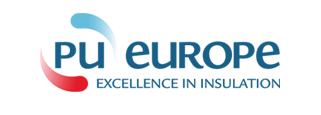Brussels, 28th October 2016 – On 7th October 2016, German REACH competent authorities submitted a restriction dossier to the European Chemicals Agency (ECHA) proposing risk management measures to ensure safe handling of diisocyanates at the workplace. The dossier calls for a mandatory training scheme for the industrial and professional use of diisocyanates but also allows applying for exemptions from this restriction.
INDUSTRY COMMITTED TO THE SAFE USE OF DIISOCYANATES
ISOPA, ALIPA and all signatories of this press release, which represent the majority of industrial and professional users of diisocyanates at European and national levels, are committed to the safety of workers handling diisocyanates. In recent years, this commitment has allowed the entire value chain to join efforts and closely cooperate with BAuA – the Federal Institute for occupational Safety and Health – in order to provide them with the most solid and relevant information during the development of the dossier.
AUTHORITIES FORESEE TRAININGS FOR USERS
The German proposal focuses on integrating training measures for the safe handling of the substances that will, therefore, remain available on the market.
One of the key measures proposed by German authorities would require diisocyanates producers – as well as different parties of the value chain – to develop and maintain training materials. These trainings will be made mandatory and ensure that employees handling diisocyanates have access to adequate safety instructions in all languages used within the EU. The exact timing and content of trainings will depend on the type of activity and the level of potential exposure at work. An indicative list of activities is included in the dossier’s appendix. While further details should be defined during the adoption of the restriction at EU level, the training courses are expected to be made available/given either via independent training institutes, public authorities designated by Members States or by in-house experts of companies. Exemptions are foreseen for activities that do not lead to relevant exposure levels.
Industry welcomes the EU-wide mandatory training for safe handling of diisocyanates through the entire value chain.
This ensures the optimal protection of workers and contributes to the sustainability of our products.
NEXT STEPS
Going forward in the legislative process, a public consultation of six months will be launched by ECHA which allows for comments to the proposal.
The whole decision-making process under REACH will take approximately 1.5-2 years, after which the regulation is expected to be adopted by the European Union. For the implementation of the regulation a transition period is expected to be fixed to adequately allow introduction of the measures throughout the whole supply chain.
———-
About diisocyanates
Diisocyanates are substances used in manufacturing polyurethanes. They are employed in a wide range of applications, notably for the production of flexible and rigid polyurethane foam, in some adhesives and sealants, in binders, in coatings, and for the production of polyurethane elastomers. Diisocyanates are processed during the production process of polyurethanes and are no longer present in the cured product.
About Polyurethanes
Together with polyols, diisocyanates are the essential building blocks for the manufacturing of polyurethanes, a plastic material that exists in various forms. It can be tailored to be either rigid or flexible, and it is the material of choice for a broad range of end-user applications, such as insulation (of buildings, refrigerators and freezers), adhesives, coatings, automotive parts, sportswear, bedding and furniture, etc.
Polyurethane is a very sustainable material, as it offers tangible solutions to challenges like climate change and energy efficiency, while its durable and lightweight characteristics can enhance resource efficiency.
About the industry
The polyurethane industry contributes approximately €230bn to the European economy. Over 2 million people are employed in the polyurethane industry via 420,000 companies in Europe.
About the associations
ALIPA is the European aliphatic isocyanate producers Association
CEC is the European Confederation of the Footwear Industry
CECED is the European Trade Association for Domestic Equipment Manufacturers
CEPE is the voice of paint, printing ink and artist’s colours in Europe
Deutsche Bauchemie is the German construction chemicals Association
EFIC is the European Furniture Industries Confederation
EAIPC is the European Association of professional Industrial Painting Contractors for protective and marine coating application to metal and concrete substrate
EPF is the European wood-based panels federation and represents the European manufacturers of particleboard, MDF, OSB, hardboard, softboard and plywood
Euromoulders is the European Association of Manufacturers of moulded Polyurethane parts for the Automotive Industry
Europur is the European Association of Manufacturers of flexible polyurethane foam blocks
FECC is the European Association of Chemical Distributors
Feica is the Association of the European Adhesive & Sealant Industry
FSK is the Specialist Association of Foamed Plastics and Polyurethanes
IndustrieverbandKlebstoffe is the German Association for Adhesives
ISOPA is the European Diisocyanate and Polyol Producers Association
IVPU is the German Association of Rigid Foam Polyurethane Producers
Kennisplatform bundles the expertise on polyurethane spray foam in the Netherlands
PDA is the Polyurea Development Association Europe
PPA Europe is the European Association for Panels and Profiles, represents the manufacturers of metal profiled sheets, sandwich panels and ancillary products on the European level
PU Europe is the single European voice for the polyurethane (PUR/PIR) insulation industry
VdL is the Asscociation of the German Paint and Printing Ink Manufacturers
ZVEI is the German Electrical and Electronic Manufacturers’ Association
Contact:
Jörg Palmersheim, Secretary General
main@isopa.org
Av. E. Van Nieuwenhuyse Laan 6
B-1160 Brussels
Tel: +32 2 676 74 75
To the press statement here
